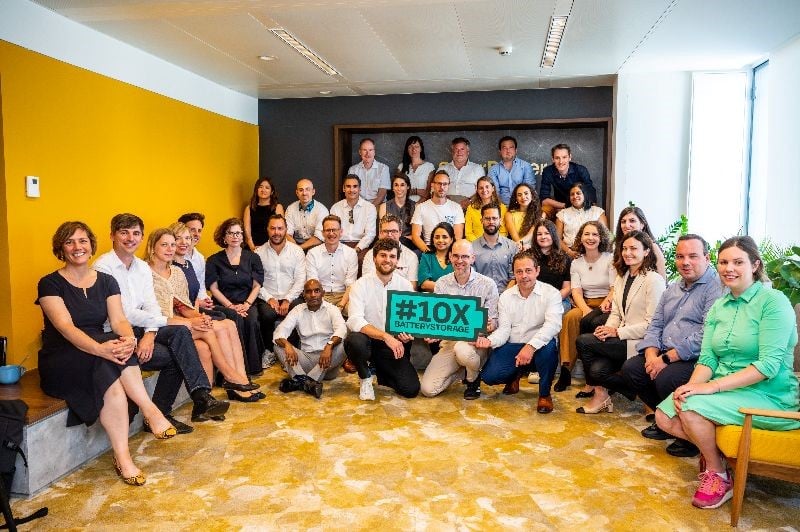
The European Union (EU) will not meet its 2030 clean energy targets unless cumulative battery storage deployments rapidly accelerate, SolarPower Europe has said.
The solar PV trade association launched the Battery Storage Europe Platform last week (1 July), which it describes as a “major new initiative to drive forward the business case and regulatory framework for battery storage across the European Union.”
The platform is a dedicated advocacy organisation for battery storage technology, led by EU and international trade law expert Juhi Dion Sud. It will facilitate engagement with policymakers and work to deliver legislative trade and investment frameworks to support battery storage manufacturing and deployment across the bloc’s 27 Member States.
SolarPower Europe’s report, ‘European Market Outlook for Battery Storage 2025-2029,’ published in May, found that the continent had around 61GWh cumulative battery storage installations across all market segments, including about 50GWh within the EU.
Try Premium for just $1
- Full premium access for the first month at only $1
- Converts to an annual rate after 30 days unless cancelled
- Cancel anytime during the trial period
Premium Benefits
- Expert industry analysis and interviews
- Digital access to PV Tech Power journal
- Exclusive event discounts
Or get the full Premium subscription right away
Or continue reading this article for free
That came off the back of the industry deploying 21.9GWh of battery energy storage systems (BESS) across Europe with about 18.5GWh in the EU in 2024, including utility-scale, commercial and industrial (C&I) and residential.
It marked the 11th consecutive year of record-breaking growth. SolarPower Europe analysts forecast that in the medium-growth scenario of three modelled outcomes, annual installations could reach 118GWh by 2029.
The trade association forecast that 2025 would see a total of 29.7GWh across the continent. If current market trends continued, EU member states would have an installed base of 344GWh by the final year of the 2020s, representing around a 45% compound annual growth rate (CAGR).
That obviously appears to be encouraging from the industry growth perspective. However, SolarPower Europe said last week that it still falls far short of what is needed.
‘Battery storage is no longer optional’
The European Union’s Renewable Energy Directive sets a binding target for at least 42.5% of the EU’s energy supply to come from renewable sources by 2030. Adopted in 2023, the directive upped the target from 32%, which was set just two years previously in 2021, before Russia’s invasion of Ukraine sparked an energy supply and pricing crisis across Europe.
Following the outbreak of war, as part of the RePowerEU plan that set out measures to reduce EU dependence on imported Russian fossil fuels, a target of 45% was suggested, and this has been incorporated into the Renewable Energy Directive as an aspirational target.
Overall, it means more than doubling renewable energy capacity from the previous 22% by 2020 target, which the EU comfortably met in time.
According to SolarPower Europe, integrating the greatly increased share of renewables in the energy sector – responsible for more than 75% of the EU’s greenhouse gas (GHG) emissions – would require between 500GWh and 780GWh of storage.
“Battery storage is no longer optional – it is essential. Without urgent action, the EU risks stalling its energy transition,” Battery Storage Europe Platform head Juhi Dion Sud said last week.
“We are calling for a tenfold increase in battery storage by 2030. This is vital to sustain the rapid growth of solar and other renewables, and to ensure the EU’s energy security, resilience and competitiveness.”
The platform has launched with over 50 member organisations, including four strategic partners: Norwegian government-owned power generator Statkraft, international insurance broker Renewable Energy Insurance Broker (REIB), solar PV plant solutions company SUNOTEC and Portuguese electricity generator, distribution and supply company EDP.





